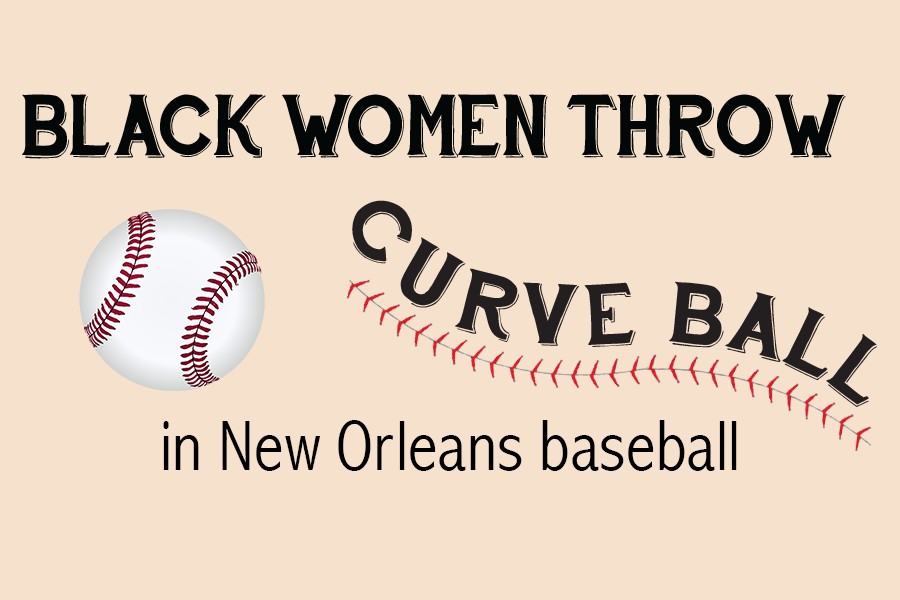Black women throw curveball in New Orleans baseball

Back in the heyday of baseball, New Orleans cheered for the Pelicans, a now defunct minor league baseball team that won championships in 1933 and 1934. Players of color, however, were excluded from joining this team.
This led Black sports enthusiasts to create the minor league New Orleans Black Pelicans and the New Orleans Creoles, both members of the Negro Southern League. Though these teams were primarily composed of men, the New Orleans Creoles slowly began hiring women in the 1940s.
One hall-of-famer, Toni Stone, went on to become the first woman to play in the major leagues.
Stone’s indomitable career began in St. Paul, Minnesota, where she grew up honing her baseball skills. After being denied a career in the women’s softball leagues due to her race, Stone received an offer at the age of 16 to pitch for the minor league Twin Cities Colored Giants, a previously all-male team.
Following her midwestern success, Stone became a second baseman for the semi-pro New Orleans Creoles. When club owners ordered Stone to wear a skirt while playing, as was expected of female players in softball leagues, Stone refused, contending that she was an athlete and would only wear a regulation uniform.
Stone would later be drafted into the major league Indianapolis Clowns. Because the Clowns typically traveled with comedic acts and other novelties, Stone’s critics claimed that she was hired in accordance with this tradition.
In her first game, however, Stone batted a single that ushered in two runs. Further statistical records show that Stone was able to run 100 yards in 11 seconds and batted .243 her first season with the Clowns, including a single hit off of legendary pitcher Satchel Paige.
Stone has been inducted into the Baseball Hall of Fame and the Women’s Sports Hall of Fame. Her story has been memorialized in “Curveball: The Remarkable Story of Toni Stone” by Martha Ackmann. Later this year, Stone’s life will also be dramatized in an off-broadway play starring “Orange is the New Black” alum Uzo Aduba.
Another influential woman in baseball, Lucille Bland, served as a third base coach for the Creoles. As Creoles promoter and owner Allen Page searched for a female coach, Bland, an experienced baseball and basketball player for Dillard University, was a superb choice. Bland held her own in the male-dominated scene, often taking a no-holds-barred approach when mediating with umpires.
“I’d get right in an umpire’s face and let him have it” Bland said, in “Curveball: The Remarkable Story of Toni Stone.”
The Creoles also hired Fabiola Wilson of Xavier University, and Lucille Gloria Dymond of Southern University. On the team’s 1949 roster, a third player, Wilson MacDonald, is designated as a woman, but it appears that no further information regarding her life is available.
All three women were billed as extra outfielders and left the team within a year. Despite Bland’s eventual success, she too ceased working in the world of sports after an automobile accident in 1948.
Black men’s baseball teams outside of New Orleans began to hire women as well. Following Stone’s departure from the Clowns, the franchise hired Connie Morgan to replace her. That same year, Mamie Johnson became the Clowns’ starting pitcher.
After Jackie Robinson’s acceptance into the previously white MLB, however, baseball teams slowly began to integrate, resulting in the eventual demise of the Negro Leagues. Today, Black women can and do play for various softball teams. Baseball, however, still remains largely unreachable for women of any race.
Your donation will support the student journalists of Tulane University. Your contribution will allow us to purchase equipment and cover our annual website hosting costs.



Perry • Feb 14, 2019 at 9:43 am
Baseball is becoming more and more accessible to girls and women every day thanks to the efforts of organizations like Baseball For All, the International Women’s Baseball Center, and the myriad girls baseball groups (DC Girls Baseball, Toronto Girls Baseball, LA Monarchs, et al.) that assemble all-girls teams, provide clinics to help them learn fundamentals, and raise funds to enable the girls they coach to participate in tournaments all over the country and the globe. Reaching out to young women of color and other girls who have traditionally been overlooked or bypassed because of the hard-to-shake concept of baseball as a game for boys and softball as one for girls is paramount to the expansion of girls and women’s baseball. Articles such as this do a great job of getting the message out that girls and women can play, and always have played – since the Civil War, at least – baseball at a high level of skill and entertainment, but this one gets part of the history wrong, an all-too common error in reporting on these remarkable but still relatively obscure women athletes. Toni Stone, as great as she was, has NOT been “inducted” into the Baseball Hall of Fame, the one in Cooperstown, New York. Only one woman holds that distinction so far, and she is Effa Manley, an executive in the defunct Negro Leagues. While Toni Stone is honored in the “Diamond Dreams: Women in Baseball” exhibit at the Hall of Fame where photos and plaques memorializing her accomplishments are on display, Toni herself has not been inducted into that hallowed assemblage, and because of the nature of the restrictive rules regarding who is eligible for induction, probably never will be. But we can honor her talent, her legacy, and the spark she still provides young girls looking for a hero to emulate regardless of her absence from the ranks of Hall of Fame inductees. Thanks to author Olivia Henderson and the Tulane Hullabaloo for this profile of a gifted athlete who deserves all the belated attention she is getting, twenty-three years after her death.